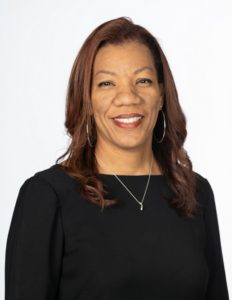CREW February 2021 Luncheon: The Color of Change
Submitted by Amy Massey, PE, Kimley-Horn
 2020 may be remembered partly as a record year of civil unrest across the US, prompting a more deliberate focus on racial inequities. As a result, many industry sectors have increased efforts to advance diversity, equity, and inclusion (DEI) – including the CRE field.
2020 may be remembered partly as a record year of civil unrest across the US, prompting a more deliberate focus on racial inequities. As a result, many industry sectors have increased efforts to advance diversity, equity, and inclusion (DEI) – including the CRE field.
CREW Charlotte was fortunate to have a ‘conversation amongst friends’ at our February 9th virtual luncheon with our very own past president and current CREW Network Board member, Adrienne Bain, who serves as an executive at Citizens Bank. And it seems appropriate that this particular luncheon has taken place during National Black History month. Adrienne gave us some clues as to her upbringing and background, sharing some of the issues she has seen and changes that have taken place over time.
Adrienne also took polls and shared results of the participants’ demographics and current company activities in the DEI realm; and gave us a look into gender and racial disparities via CREW Network Benchmark studies, CREDiversity.com, Bisnow research, and Deloitte data. A couple of CRE-specific deductions, amongst other serious disparities:
- Women are losing ground in both total compensation and C-suite positions.
- Being both female and a person of color is a further disadvantage.
So what are the contributing factors and how can the situation really change? Some of the conversation focused on a lack of awareness and unconscious bias. Further discussion suggested that there is a lack of access to meaningful sponsorship and mentorship- which based on data comes ultimately from leaders who happen to be mostly white males. It seems then that progress moving forward will in large part be dependent on the willingness of those in power positions to help achieve more diversity and parity, which is surely supported by the business case. It is good to see that many companies are stepping up their efforts in DEI. But the conversation is just beginning; it will take much more attention and energy to really move the needle toward equality.



No Comments